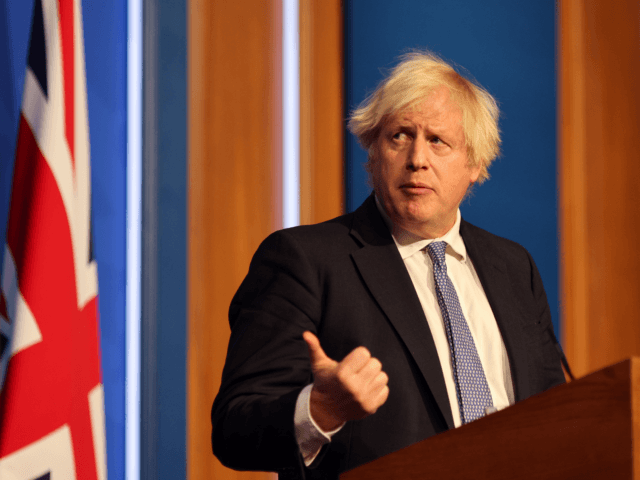Prime Minister Boris Johnson’s government is reportedly looking to abolish all remaining coronavirus restrictions by March as the push to return to normality has gained traction amid steadily decreasing cases of the Chinese virus.
Later this Month, MPs will gather to vote on an extension of the ‘Plan B’ restrictions which were put in place in November, despite a large rebellion within the Tory Party against the government. The vote, set for January 26th, is expected to see the end of coronavirus passport requirements, yet mask rules for public places may remain for the time being.
Yet, according to a report in The Guardian newspaper, Number 10 is set to introduce plans to scrap all restrictions in England by March. While Britain saw some of the strictest lockdowns during the initial waves of the Wuhan virus, should the reported plans come through, England would look to become one of the freest countries in Europe in terms of the virus.
“There’s a few legal powers still on the statute book, not least the requirement to self-isolate. At some point we will have to address them,” a government source told the paper.
On top of the Plan B rules of COVID passports and mask-wearing, England still has some remaining restrictions in place from the initial lockdowns, such as mandated self-isolation upon contracting the virus, with fines of up to £10,000 for violations. The requirement for providing your address and details of the people in your household to the NHS test and trace system remains in place as well.
The government is also expected to scrap the need to provide a negative test for those returning from abroad by March and will address the statutory powers for the government to provide sick pay for workers.
Britain Will Lead World in Learning to Live with COVID, Says Govt Minister https://t.co/9uuk0GFvqj
— Breitbart London (@BreitbartLondon) January 10, 2022
There has been increasing calls from across the political spectrum in Britain to return to normality, with former vaccines minister, now Education Minister Nadhim Zahawi saying last week: “I hope we will be one of the first major economies to demonstrate to the world how you transition from pandemic to endemic, and then deal with this however long it remains with us, whether that’s five, six, seven, 10 years.”
On Sunday, shadow health secretary and Labour MP, Wes Streeting wrote in The Mail on Sunday: “We know that the coronavirus is here to stay but, as Labour’s Shadow Health Secretary, I don’t want to see our country in lockdown ever again.”
“Learning to live well with Covid will prepare us to get through the next wave of infections without more restrictions on our lives, livelihoods and liberties,” the Labour politician added.
The anti-lockdown stance from the left-wing party is significant, as instead of acting as an opposition to the government, Labour has consistently backed all of the draconian measures introduced by the Conservative government.
The fact that both parties are looking to end lockdowns signals a potential mood-shift in Britain, which has seen numerous polls throughout the pandemic showing the UK population to be one of the most frightened of the virus in the West.
UK Looks to Scrap Coronavirus Passports as Omicron Wave Fadeshttps://t.co/Z4KSLvHlI1
— Breitbart London (@BreitbartLondon) January 15, 2022
The move to potentially scrap all lockdown measures also comes as Prime Minister Boris Johnson has been attempting to wade through a political crisis after numerous leaks revealed his government partying in Downing Street while the rest of the nation was forced to abide by lockdown rules.
In response to the political turmoil incurred, the government has embarked upon an “Operation Red Meat” strategy of announcing actually identifiably conservative agenda items, such as scrapping the BBC licence fee and potentially sending the Royal Navy to the English Channel to address the migrant crisis. Prior to the lockdown scandals, Johnson’s government focussed heavily on more left-wing issues such as green energy and high taxes, alienating significant segments of the Tory base.
Should the government propose an end to all coronavirus restrictions, Mr Johnson will likely face accusations that it was done in order to shore up support in the parliament from the right, which staged a nearly 100 MP rebellion in November against the latest round of coronavirus rules.
Regardless, cases in the UK have seen a dramatic decline since the peak in December. On Monday, the government recorded 84,429 cases, down from a peak of 246,264 on December 29th.
Follow Kurt Zindulka on Twitter here: @KurtZindulka

COMMENTS
Please let us know if you're having issues with commenting.